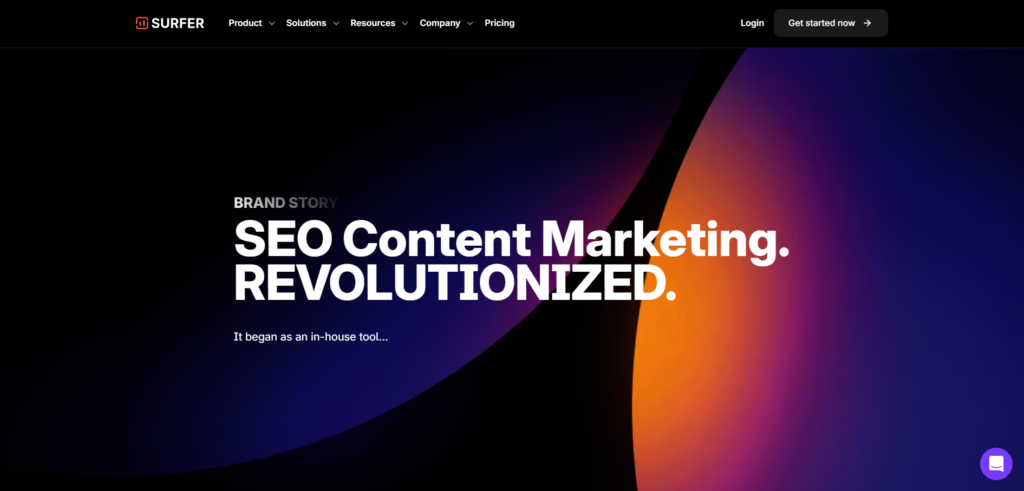In 2025, digital marketing continues to evolve rapidly, driven by new technologies, data-driven strategies, and enhanced user expectations. To stay ahead of the competition, digital marketers rely on a variety of tools that help streamline campaigns, gather insights, and optimize performance.
The most recent tools that are popular in digital marketing are listed below, along with a thorough description of their uses and benefits:
1)ChatGPT (Content Creation):
AI-powered tools like ChatGPT (from OpenAI) are transforming content creation. These tools use natural language processing (NLP) to create engaging, human-like text for blogs, social media posts, email marketing, and more. The latest versions, including GPT-4, allow marketers to automate content production, research, and even customer service interactions.

Key Features:
- Generates high-quality content quickly based on prompts.
- Personalized responses for customer service and chatbots.
- Assists in idea generation for blogs, articles, and product descriptions.
AI content generators significantly reduce the time and effort spent on creating content, allowing marketers to focus on strategy and optimization. They also enable businesses to personalize customer interactions at scale, improving engagement and conversion rates.
2) SEMrush (SEO and Marketing Analytics):
SEMrush is an all-in-one digital marketing platform widely used for SEO, PPC (pay-per-click), and competitive analysis. The tool helps marketers improve their website rankings by providing insights into keyword performance, backlink strategies, and on-page SEO optimization.
Key Features:
- Comprehensive keyword research and analysis.
- Technical SEO faults can be found with SEO audit tools.
- Competitive analysis and market insights.
- Content optimization recommendations.
- PPC tools for optimizing Google Ads campaigns.
SEMrush empowers marketers with actionable insights to optimize their organic search presence, track competitors, and create data-driven content strategies. This tool is essential for marketers looking to increase their online visibility through SEO and paid campaigns.
3) Google Analytics 4 (GA4):
GA4 is Google’s latest iteration of its analytics platform, replacing Universal Analytics. GA4 offers more advanced tracking capabilities, with a focus on event-based data rather than session-based data. This gives marketers a more comprehensive understanding of user behaviour across websites and apps.

Key Features:
- Event-driven data model for deeper insights into user interactions.
- Improved tracking of user activities on various devices.
- Predictive metrics and machine learning capabilities.
- Integration with Google Ads and other platforms for performance tracking.
- Prioritize user privacy and consent management.
GA4 allows marketers to track the full customer journey, providing deeper insights into user behaviour and preferences. The integration of AI-driven predictive analytics also helps businesses anticipate customer actions, optimize campaigns, and improve ROI.
4) HubSpot (CRM And Marketing Automation):
HubSpot is a comprehensive CRM and marketing automation platform that helps businesses streamline their digital marketing efforts. From lead generation to customer relationship management, HubSpot integrates various marketing tools into one platform to automate and optimize campaigns.
Key Features:
- Email marketing and automation.
- CRM and sales funnel management.
- Social media scheduling and analytics.
- Marketing and sales integration for lead tracking.
- Advanced reporting and attribution models.
HubSpot’s all-in-one functionality helps marketers build and manage customer relationships while automating repetitive tasks such as email nurturing and lead management. It allows marketers to target potential leads more efficiently, improve communication, and provide data-driven insights.
5) Hootsuite (Social Media Management):
Hootsuite is a popular social media management tool that helps marketers manage multiple social media accounts, schedule posts, and track performance across various platforms. It’s ideal for businesses looking to optimize their social media marketing strategy.
Key Features:
- Scheduling and automating social media posts.
- Monitoring and responding to social mentions.
- Analytics to measure social media performance.
- Integration with multiple platforms (Facebook, Twitter, Instagram, LinkedIn, etc.).
- Social listening and competitor analysis.
By enabling marketers to oversee all their accounts from a single dashboard, Hootsuite streamlines social media administration. The platform’s scheduling features ensure consistent posting, while its analytics tools help refine social media strategies for better engagement and ROI.
6) Canva (Graphic Design):
Canva has become a go-to tool for digital marketers who need to create visually appealing content without hiring professional designers. It’s an intuitive graphic design platform that offers a wide range of templates for social media posts, presentations, infographics, and more.

Key Features:
- Drag-and-drop interface for easy design creation.
- Extensive library of templates, photos, and design elements.
- Brand kits for consistent visual identity across all channels.
- Video editing and animation capabilities.
- Collaboration tools for team-based design projects.
Canva allows marketers to create professional designs for various digital marketing campaigns, from social media posts to email marketing visuals. It empowers even non-designers to produce high-quality visuals quickly, ensuring branding consistency across platforms.
7) Ahrefs (Backlink and SEO Analysis):
Well-known for its broad backlink research capabilities, Ahrefs is a potent SEO tool. It provides insights into a website’s link profile, keyword rankings, and overall, SEO health, making it a favourite among SEO professionals.
Key Features:
- Comprehensive backlink analysis.
- Competitor SEO research and analysis.
- Keyword research for content optimization.
- Tools for site audits to find problems with SEO.
- Rank tracking for specific keywords.
Ahrefs helps marketers improve their organic search visibility by uncovering opportunities for backlinks, keyword targeting, and content creation. It’s especially useful for developing SEO strategies that focus on competitive analysis and link-building.
8) Mailchimp (Email Marketing Automation):
Businesses may design, send, and monitor email campaigns with the help of the well-known email marketing platform Mailchimp. It offers robust automation and segmentation tools, helping marketers send targeted emails to the right audience at the right time.
Key Features:
- Drag-and-drop email builder.
- Email automation for nurturing leads.
- Advanced segmentation for personalized email campaigns.
- Comprehensive email performance metrics and A/B testing.
- Integration with other platforms like Shopify, WordPress, and social media tools.
Mailchimp manages email campaigns, builds subscriber lists, and automates email marketing workflows. Its robust analytics and testing tools allow marketers to optimize their campaigns for higher open rates and conversions continuously.
9) BuzzSumo (Content Discovery and Influencer Marketing):
A great resource for finding and researching material is BuzzSumo. It helps marketers find trending content, understand what resonates with audiences, and identify key influencers in their niche.
Key Features:
- Content discovery, which locates high-performing and viral content.
- Competitor analysis to see what content is driving engagement.
- Influencer identification for influencer marketing campaigns.
- Content alerts for tracking mentions of specific topics or keywords.
BuzzSumo is an essential tool for content marketers looking to create content that resonates with their audience. By analysing trending topics and identifying key influencers, it allows marketers to craft data-driven content strategies that drive engagement.
10) AdEspresso (Facebook and Instagram Ads Optimization):
AdEspresso is a tool designed to help marketers optimize their Facebook and Instagram ad campaigns. It simplifies the ad creation process and provides detailed analytics to improve ad performance over time.
Key Features:
- A/B testing for ad variations.
- Creating and refining Facebook and Instagram ads.
- Analytics for tracking campaign performance and audience insights.
- Integrate with Google Ads and LinkedIn for cross-platform advertising.
- Detailed reporting to help fine-tunes ad targeting and creatives.
AdEspresso takes the complexity out of running Facebook and Instagram ads by providing easy-to-use tools for ad creation, testing, and optimization. Marketers can experiment with different ad variations to identify the most effective strategies, ultimately improving ROI.
11) Monday.com (Project Management for Marketing Teams):
Monday.com is a project management tool that helps marketing teams stay organized and manage campaigns efficiently. It’s designed to help teams collaborate, track progress, and meet deadlines on multiple campaigns simultaneously.
Key Features:
- Customizable workflows and templates for marketing projects.
- Team collaboration tools for file sharing and task management.
- Time monitoring and deadline reminders that run automatically.
- Integration with other tools like Slack, Google Drive, and HubSpot.
Monday.com allows marketing teams to streamline campaign management, improving efficiency and collaboration. It helps keep all team members on the same page, ensuring that projects are delivered on time and within budget.
12) Surfer SEO (Content Optimization):
Surfer SEO is an on-page SEO tool that helps marketers create content that is optimized for search engines. It makes recommendations in real time based on the best content for keywords, so your material has the best chance of coming up in search results.
Key Features:
- Content editor with real-time SEO recommendations.
- SERP analysis for identifying top-ranking competitors.
- Keyword density, structure, and backlink suggestions.
- Integration with Google Docs for

Conclusion
The latest trending tools in digital marketing are reshaping how businesses operate, engage with their audience, and optimize their strategies. As the digital marketing landscape continues to evolve, the integration of AI, automation, and data-driven insights is becoming increasingly crucial for success.
These tools allow marketers to not only reach their target audience more effectively but also to create more engaging and personalized experiences. By leveraging these trending tools, businesses can stay competitive, adapt to new marketing trends, and ultimately achieve better results in an ever-changing digital environment.
